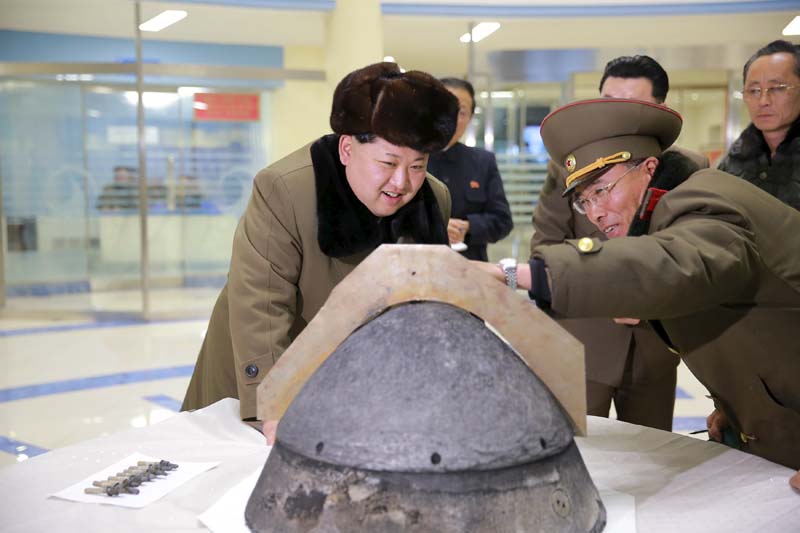North Korea says missile test simulated attack on South Korea ports, airfields
North Korea said on Wednesday it had conducted a ballistic missile test that simulated preemptive strikes against South Korean ports and airfields used by the US military, likely referring to the launches of three missiles on Tuesday.
The North's leader Kim Jong Un supervised the exercise that successfully tested the simulated detonation of nuclear warheads mounted on missiles, its official KCNA news agency reported.
It did not give the date of the exercise, as it customarily reports activities of its leader without dates or locations.
North Korea fired three ballistic missiles that flew between 500 km and 600 km (300-360 miles) into the sea off its east coast, South Korea's military said, the latest in a series of provocative moves by the isolated country.
"The drill was conducted by limiting the firing range under the simulated conditions of making preemptive strikes at ports and airfields in the operational theatre in South Korea where the US imperialists nuclear war hardware is to be hurled," KCNA said.
"And it once again examined the operational features of the detonating devices of nuclear warheads mounted on the ballistic rockets at the designated altitude over the target area," it said.
North Korea fired three ballistic missiles that flew between 500 km and 600 km (300-360 miles) into the sea off its east coast, South Korea's military said, the latest in a series of provocative moves by the isolated country.
The US military said it believed two of the missiles were Scuds and the other a Rodong, a home-grown missile based on Soviet-era Scud technology.
North Korea is believed to be developing nuclear warheads and trying to miniaturise them to mount on ballistic missiles but it is believed by experts to be a few years away from mastering the technology.
Tuesday's missile launches were seen as a show of force rather than a test to improve missile capabilities, a week after South Korea and the United States chose a site in the South to deploy the Terminal High Altitude Area Defence (THAAD) anti-missile system to counter threats from the North.
North Korea has threatened a "physical response" to the move.
China has objected to the decision saying it would destabilize the security balance in the region.
The North's missile firing on Tuesday drew swift criticism from the South, the United States and the European Union.
South Korea said it was again in violation of United Nations Security Council resolutions that ban the North's use of ballistic missile technology.
North Korea came under the latest UN Security Council resolution in March after conducting its fourth nuclear test in January and launching a long-range rocket the next month.






